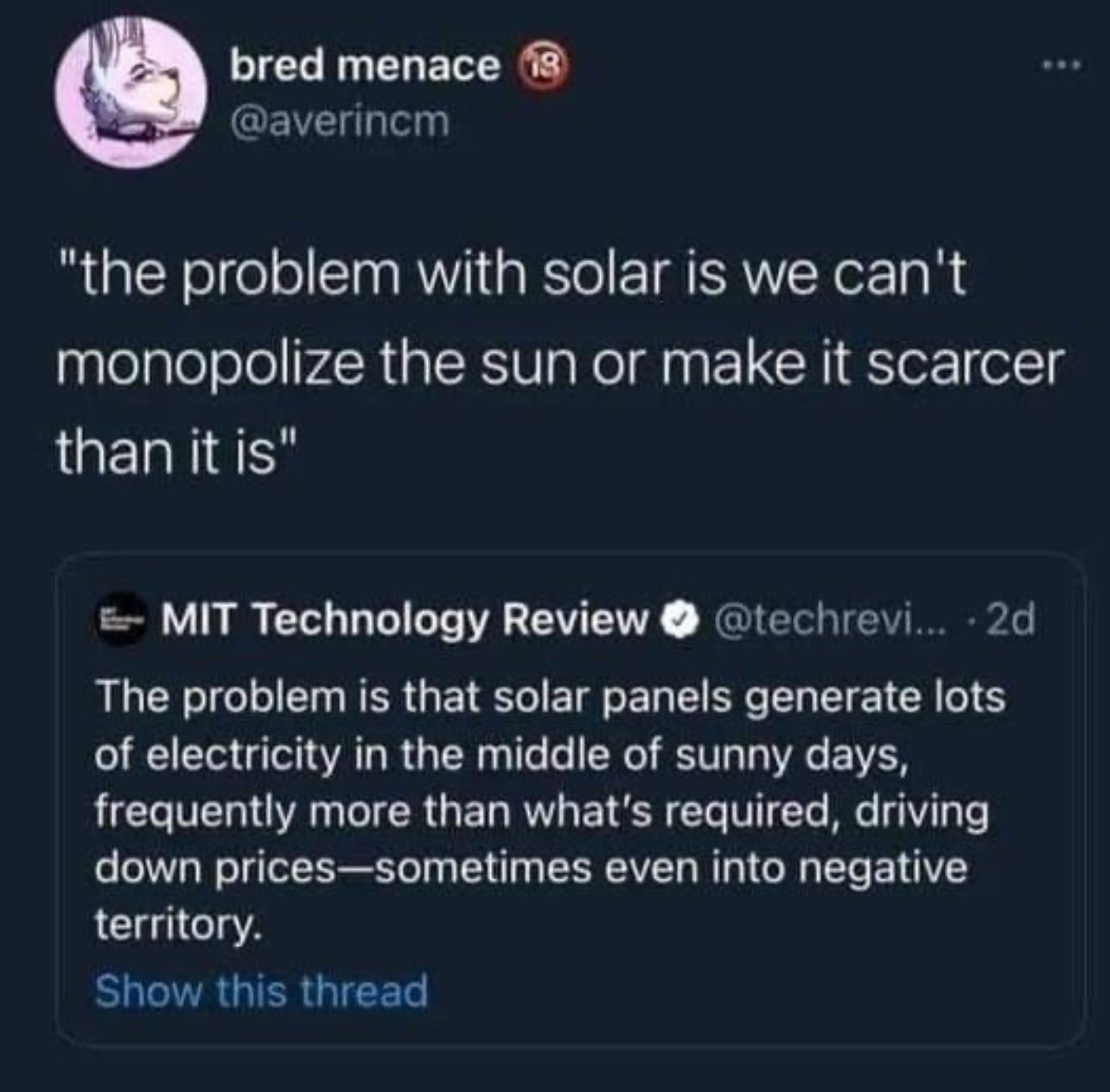this post was submitted on 02 Oct 2024
1690 points (95.6% liked)
Microblog Memes
5863 readers
3878 users here now
A place to share screenshots of Microblog posts, whether from Mastodon, tumblr, ~~Twitter~~ X, KBin, Threads or elsewhere.
Created as an evolution of White People Twitter and other tweet-capture subreddits.
Rules:
- Please put at least one word relevant to the post in the post title.
- Be nice.
- No advertising, brand promotion or guerilla marketing.
- Posters are encouraged to link to the toot or tweet etc in the description of posts.
Related communities:
founded 1 year ago
MODERATORS
you are viewing a single comment's thread
view the rest of the comments
view the rest of the comments

Public utilities still need to cover their expenses, and they're not going to be able to do that if they're charging negative rates in the middle of the day and have no electricity to sell once the sun goes down.
Do I really need to explain the concepts of taxes, subsidies, or fixed prices regardless of demand, to an adult?
I'm not sure what you mean. Are you saying that public utilities should be funded from taxes instead of charging for service? I don't think having tax payers pay public utilities to overproduce electricity is going to fix the problem, especially since no amount of tax dollar funding can allow utilities to produce solar electricity when the sun isn't shining.
The solution is obviously not exclusively from pricing models, we need other energy sources than renewables for the time being, that doesn't mean we need to have market-based electricity pricing.
Imagine the state installing as many solar panels as society, guided by experts, democratically decides it wants, basically deciding as a society the energy mix instead of hoping that companies will install enough if we bribe them enough with taxes to do so, and if it's profitable. Then, it decides a pricing model based on a mixture of subsidy and incentivising consumption during production hours.
Problem solved, innit?